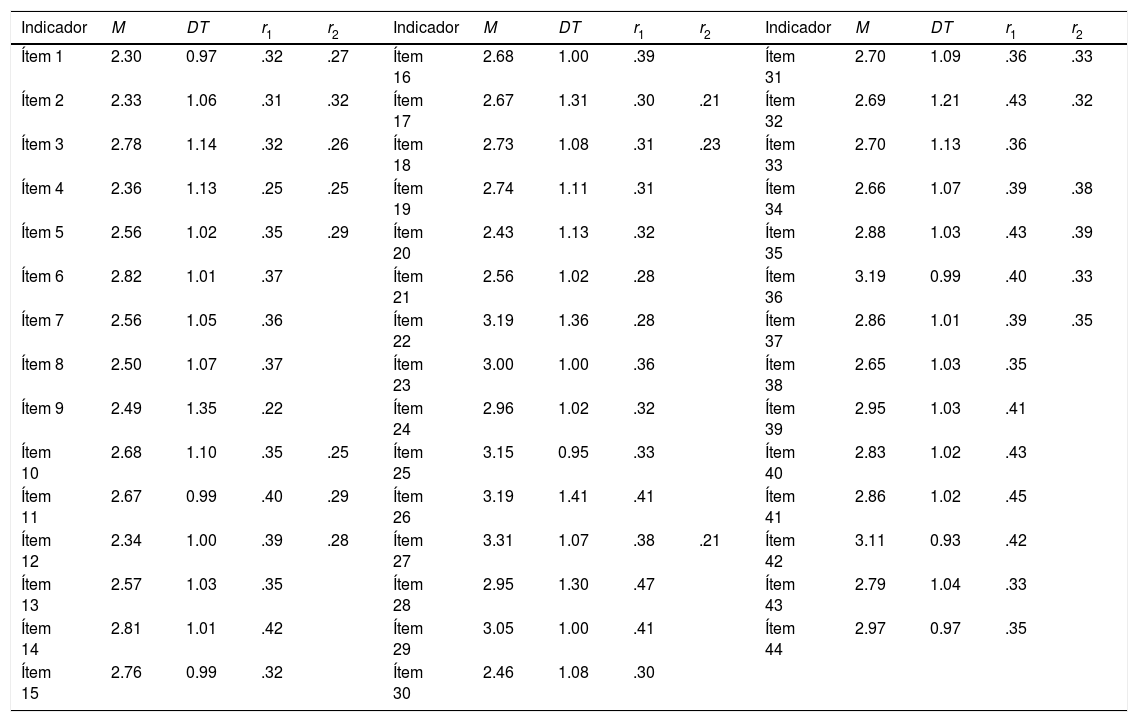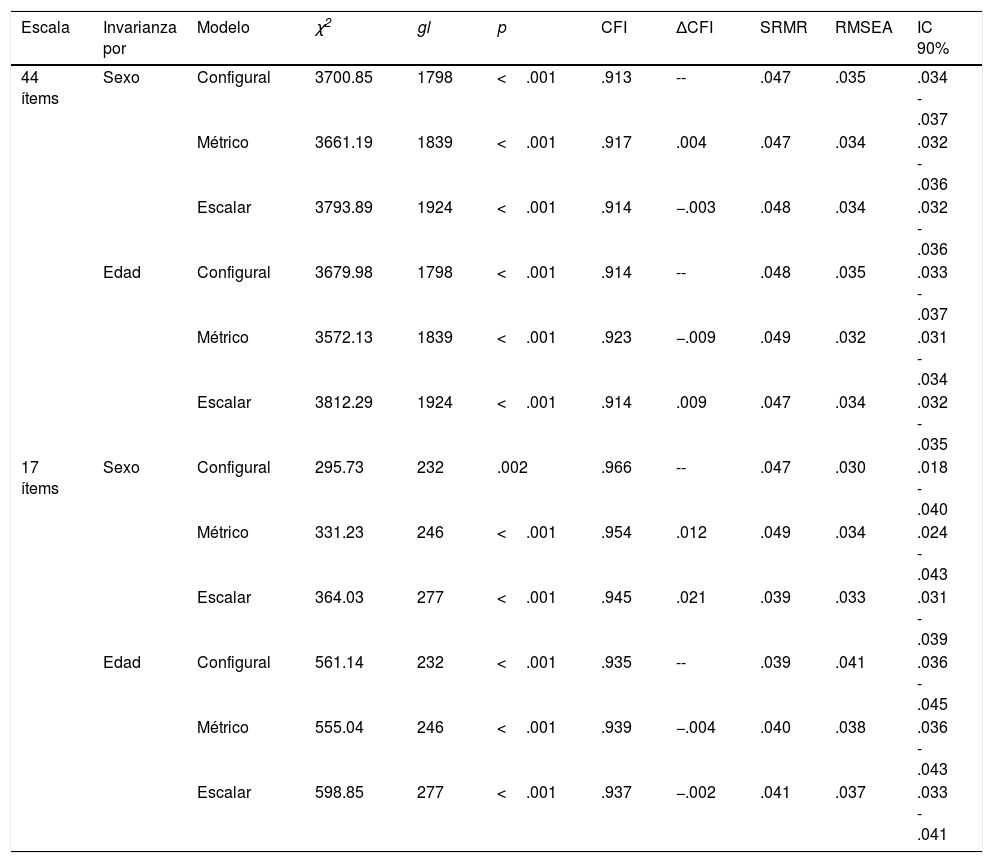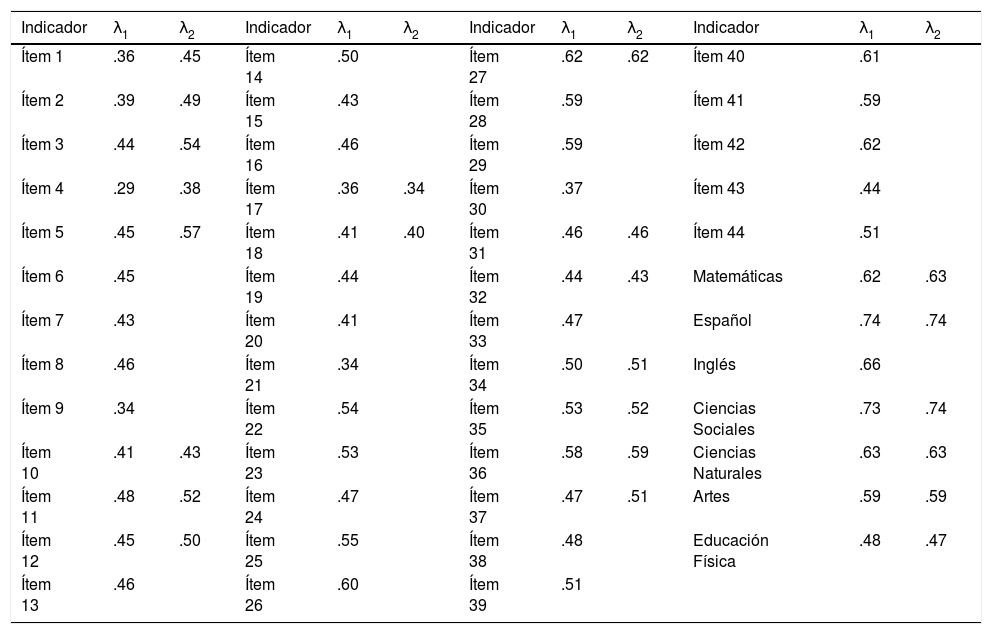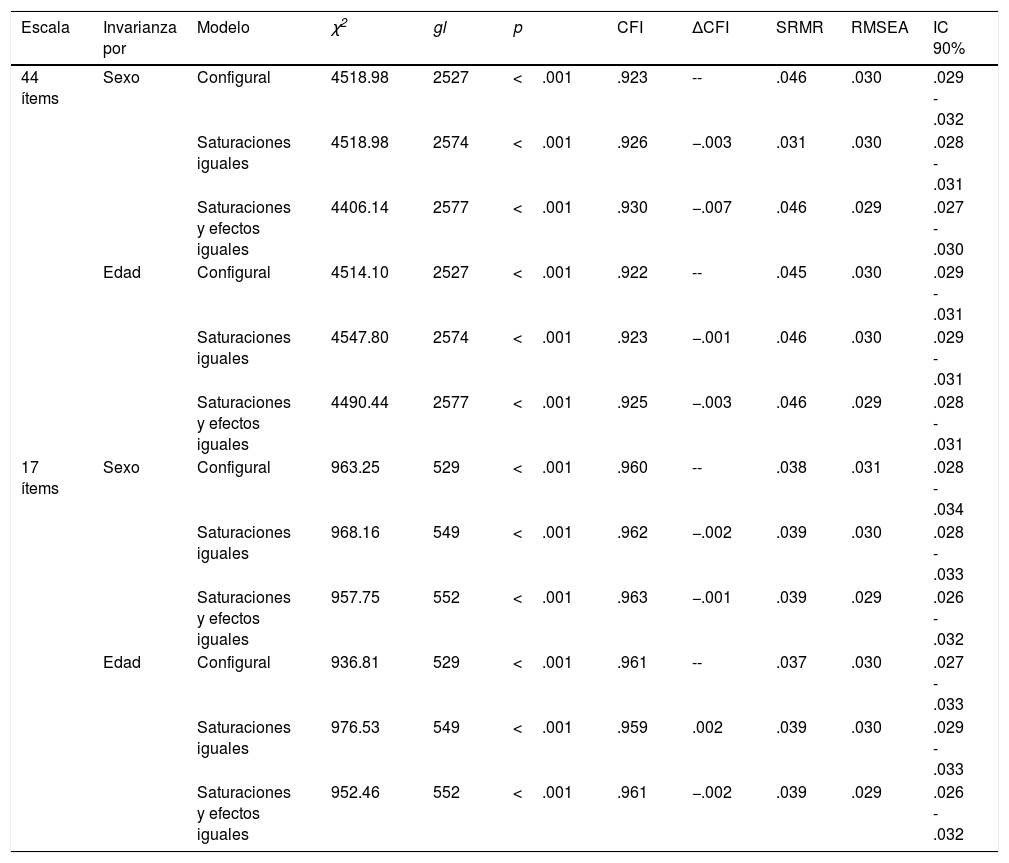Las estrategias de aprendizaje han sido ampliamente estudiadas, y relacionadas con el éxito académico en diversos estudios. Entre las medidas desarrolladas, la versión de 44 ítems de la Escala de Estrategias de Aprendizaje (ACRA) es, de lejos, una de las más utilizadas en el contexto de habla hispana. Recientemente, este instrumento ha sido reducido a una versión de 17 ítems. Ni la versión de 44 ítems ni la de 17 han sido puestas a prueba en la República Dominicana. La muestra se compone de 1712 estudiantes dominicanos de secundaria. Ambas estructuras del ACRA se evalúan mediante AFC; se calcula alfa y el índice CRI para valorar la consistencia interna; y, para obtener evidencia de las relaciones con otras variables, se prueban dos modelos de predicción del rendimiento académico. Los resultados muestran una estructura interna adecuada para ambas versiones, aunque mejor consistencia para la primera. Ambas versiones de la escala resultan invariantes a través de sexo y edad, y no hay diferencias en las medias latentes. En el modelo de predicción con la versión de 44 ítems, las estrategias cognitivas son el único predictor significativo de rendimiento; con la de 17 ítems, lo es el apoyo emocional-social. Estos modelos predictivos son, de nuevo, invariantes a través de sexo y edad. Teniendo en cuenta estos resultados, la versión de 44 ítems muestra mejores propiedades para evaluar las estrategias de aprendizaje en la República Dominicana. Sin embargo, si el objetivo es predecir el rendimiento académico, podría utilizarse una versión mixta de las versiones de 44 y 17 ítems.
Learning strategies have been widely studied, and they have been related to academic achievement in several studies. Among the measurement instruments developed, the 44-item version of the Learning Strategies Scale (ACRA) is, by far, one of the most widely used questionnaires in the Spanish speaking context. This instrument has been recently shortened to a 17-item version. Neither the 44-item nor the 17-item version have been tested in the Dominican Republic. The aim of this study is to study the psychometric properties of the 44-item and 17-item versions of the ACRA. Participants were 1712 Dominican secondary school students. Both structures of the ACRA were tested via CFA; alpha and CRI Index were calculated for internal consistency; and, to obtain evidence of the relations with other variables, two models of academic achievement prediction were tested. Results pointed adequate internal structure of both versions, but higher consistency estimates for the former. Both versions of the scale were invariant across gender and age, and no latent mean differences were found. In the prediction model of the 44-item, cognitive strategies was the only significant predictor of achievement; in the 17-item ACRA, it was emotional-social support. These predictive models were, again, invariant across gender and age. Taking into account these results, the 44-item version has shown better properties to asses learning strategies in the Dominican Republic. However, when our aim is to predict academic achievement, a mixed version of the 44- and the 17-item versions could be used.
Artículo
Comprando el artículo el PDF del mismo podrá ser descargado
Precio 19,34 €
Comprar ahora











